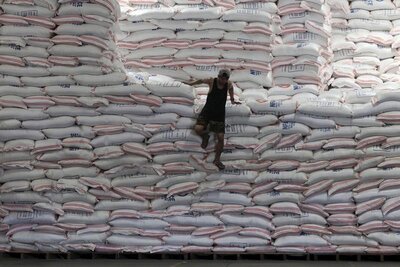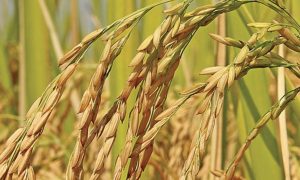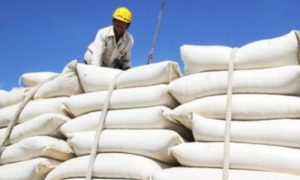As organic rice exports soar during April-July, trade smells something ‘fishy’

Organic rice exports from India in the first four months of 2024-25 surpassed the total for 2023-24, raising concerns of irregularities. Exports include white rice and broken rice, which may violate export bans and evade duties. The surge, particularly to non-traditional markets, and low prices suggest possible misconduct. The increase in transaction certificates and shifts in export ports further fuel suspicion.
Organic rice exports from India during the first four months of the 2024-25 fiscal have exceeded the total organic rice exports in the 2023-24 fiscal, leading to allegations of irregularities in the shipments.
Trading sources say soaring shipments point to flouting of the ban on white (raw) and broken rice, besides evasion of 20 per cent export duty on parboiled rice from the country. “Some in the trade have taken the organic route to hoodwink authorities,” said a trading source, who spoke on the condition of anonymity.
Data made available to businessline by trading source reveal that organic rice exports in the first four months of the fiscal were 1,46,585 tonnes compared with 1,07,727 for the entire 2023-34 fiscal. Of this, white rice made up 1,27,120 tonnes, broken rice 8,000-odd tonnes and parboiled made up the rest.
Two interesting features of the exports are the ports of exit and landing of these consignments. The majority of the shipments have taken place from JNPT (60,809 tonnes), Sonepat Inland Container Depot (30,624 tonnes) Mundra (26,049 tonnes) and Kandla (25,100 tonnes).
Non-traditional nations
Most of the consignments have headed to countries such as Vietnam (22,166 tonnes), Angola (22,100 tonnes), Mozambique (16,457 tonnes) and Kenya (11,801 tonnes) which do not import organic rice from India.
The US and Netherlands, India’s principal organic rice buyers, have bought 13,626 tonnes and 16,457 tonnes, respectively during the period. “It is all fishy. Vietnam, Madagascar, Kenya, Mozambique, other African countries and Malaysia are not traditional importers of organic rice. African nations have never imported Sona masoori and organic rice in such volumes. Further, African nations cannot afford the premium for organic rice,” said another trading source.
Trading sources said the price at which these shipments are being made should have attracted the attention of government and customs officials. They point to lower earnings from the shipments during the period.
‘Why no premium?’
“Price of organic rice exports have declined constantly since October 2023 — the timing coincides with the ban on exports of white rice in July. From $940/tonne in September 2023, the price declined to $529 in June 2024. There was a rise in July, though,” said the first source.
A Delhi-based trader said Myanmar and Pakistan are the countries quoting a lower price for non-organic white rice at about $450/tonne. “Organic rice fetches a premium. How can they be sold at prices less than $500 a tonne?” the second source wondered.
Trading sources point out that organic rice exports began gaining momentum during the Covid pandemic. But since the 2022-23 fiscal, they have increased sharply. “During Covid, buyers wanted any rice that was available,” the trader said.
Soars after curbs
“Organic rice exports have surged after the Centre imposed curbs on rice shipments. This raises the suspicion that unscrupulous exporters have resorted to this method,” the first source said, adding that before the curbs on the cereal’s shipments, the growth in organic rice exports was 20 per cent.
Between 2022-23 and 2023-24, the export volume grew 71 per cent. Going by the current export trend, there could be a 308 per cent rise in exports of organic rice this fiscal, trading sources said.
On the other hand, the Agricultural and Processed Food Products Exports Development Authority has issued a higher number of transaction certificates (TCs), which certify a product to be organic. Data show that 1,325 TCs, a must to export organic products, were issued till July this fiscal compared with 799 during the same period a year ago.
Between 2022-23 and 2023-24, the growth in TCs was 33 per cent. Compared with April-July 2024, 66 per cent more TCs have been issued. “Apeda monitors organic rice exports. Why has this surge escaped its notice?” the trading source wondered.
Trading sources said irregularities in the shipments are against farmers’ interests when the government is promoting organic and natural farming.
Against farmers’ interest
They pointed out that the chances of a sudden rise in organic rice production are bleak, particularly since 2022 as the country went through unseasonal rains and prolonged dry periods. “Internal control systems in organic are in doubt-hit areas. A sudden surge in organic rice production is, therefore, ruled out. Have documents accounted for farmers receiving higher compensation?” the source asked.
Trading sources said there is prima facie evidence, based on data, that there have been irregularities in the export of organic rice. They pointed out that the port of origin has shifted to JNPT and Mundra from Chennai and Tuticorin after Customs officials launched a probe into businessline’s report of white rice exports being under-invoiced.
The Centre began curbing rice exports from September 2022 as production in key-growing regions were affected by prolonged dry period and deficient rainfall.















